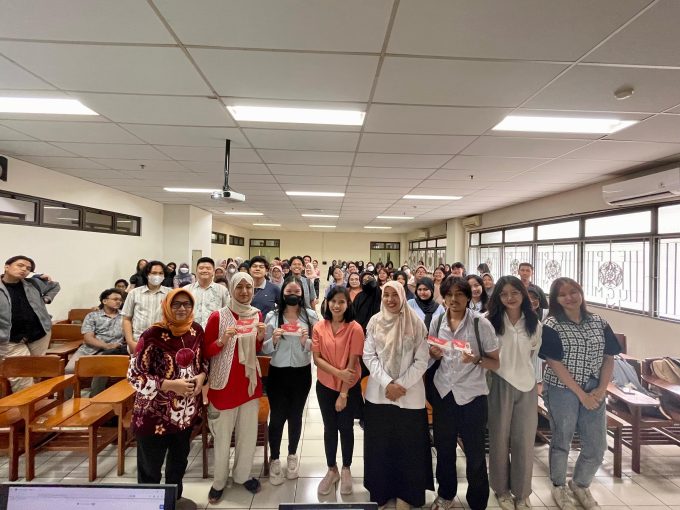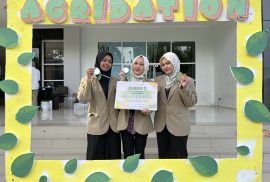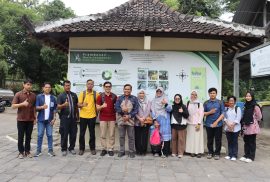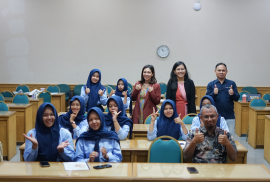
Fitri Asih Victoria, S.T.P., Regional Manager PT. Boga Makmur Wijaya, also an alumna of the Department of Food and Agricultural Product Technology (TPHP) UGM, Class of 2004, returned to her academic roots as a guest lecturer for the Food Industry Sanitation course on Monday (March 17). The session was mandatory for students enrolled in the course and offered real-world insights into the sanitation practices of the food service industry.
 In her presentation, Ms. Fitri began by introducing the foundational concept of a restaurant, not merely as a place that serves food and beverages, but as a service-oriented environment focused on customer satisfaction. A core element of this service is maintaining stringent standards of sanitation and food safety, including the implementation of Hazard Analysis and Critical Control Points (HACCP), a crucial component. She emphasized the need to manage critical control points to minimize the risk of contamination. These include proper storage of ingredients in warehouses, chillers, and freezers, as well as strict monitoring of temperature and heating durations during food preparation and cooking.
In her presentation, Ms. Fitri began by introducing the foundational concept of a restaurant, not merely as a place that serves food and beverages, but as a service-oriented environment focused on customer satisfaction. A core element of this service is maintaining stringent standards of sanitation and food safety, including the implementation of Hazard Analysis and Critical Control Points (HACCP), a crucial component. She emphasized the need to manage critical control points to minimize the risk of contamination. These include proper storage of ingredients in warehouses, chillers, and freezers, as well as strict monitoring of temperature and heating durations during food preparation and cooking.
Ms. Fitri also highlighted key differences between large-scale food manufacturing and food service operations. While the former relies heavily on automation and machinery, the latter still depends significantly on human labor. As a result, personal hygiene becomes a critical component in maintaining food safety in restaurants. Each restaurant staff member must undergo daily hygiene checks, which include assessments of uniform cleanliness, nail and hair hygiene, and general health, to prevent becoming a source of contamination.
The lecture also covered the importance of a comprehensive Pest Management System, in which restaurants must employ strategies to block pest entry and follow regular cleaning schedules. Allergen management was another key focus, with Ms. Fitri emphasizing the importance of clearly listing allergen information on menus, thereby ensuring customers are informed about potential allergens in each dish.
Additionally, students participated in discussions on the role of Quality Assurance (QA) in restaurant operations, staff certification mechanisms, and standard operating procedures for complaint handling in large restaurant chains. To maintain an interactive learning environment, Ms. Fitri presented a case study in the form of an interactive quiz. The session sparked enthusiastic participation, with students posing thoughtful questions related to sanitation and operational challenges in the food service industry. As a token of appreciation, Ms. Fitri awarded three complimentary vouchers to students who asked the best questions.
This guest lecture aligns with the United Nations Sustainable Development Goals (SDGs), specifically Goals 3 (Good Health and Well-being) and 12 (Responsible Consumption and Production). By promoting proper sanitation practices in the food and beverage (F&B) industry, the lecture contributes to public health and food safety. Furthermore, the adoption of stringent food safety systems supports responsible production and consumption practices across the food supply chain.
Written by: Firstnandita K




